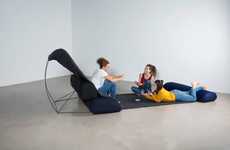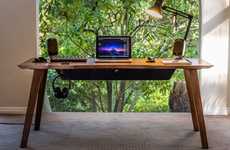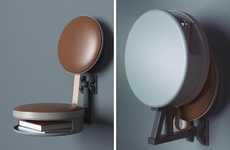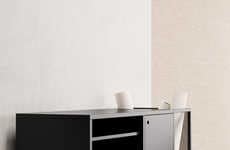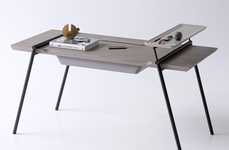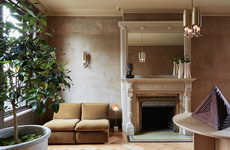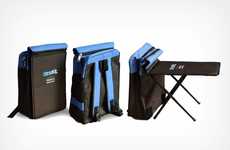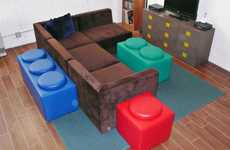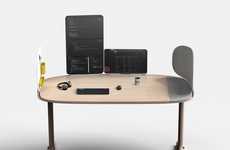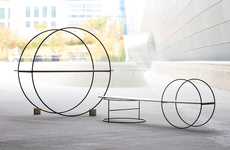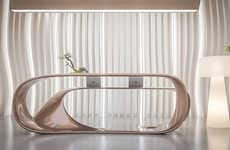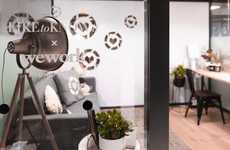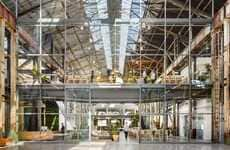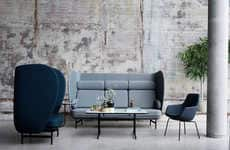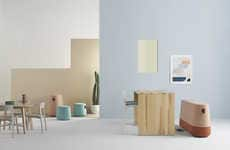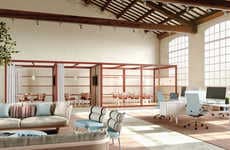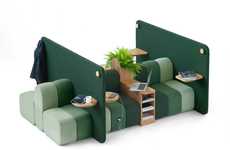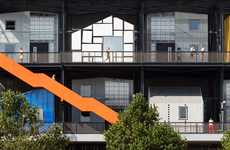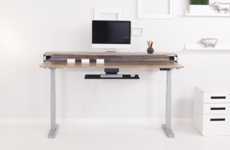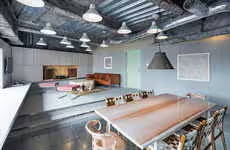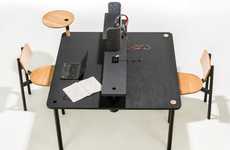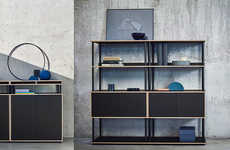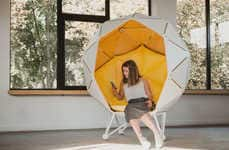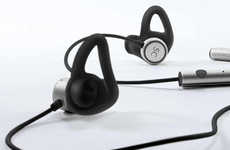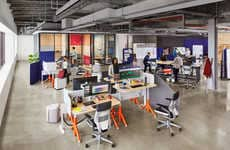
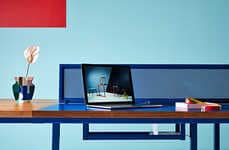
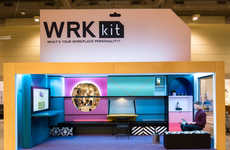

Office workstations and spaces are made to be transforming and flexible
Trend - With both traditional and more modern "open" office plans no longer being well-suited for contemporary work habits, employers are creating or offering more flexible office designs that are able to adapt based on employees' needs of the moment. With transforming furniture and workstations, brands are aiming to find solutions to the new ways that professionals are working in-office.
Insight - The busy routines of urban professionals has led to their desire for a healthier work-life balance, which can be enabled with processes like creative or remote work. This increased focus on work-from-home or creative professional opportunities has required that consumers have flexible working environments that allow them spaces for both independent and collaborative mindsets–a shift that was first seen in the growth of the "open office" plan that grew so popular in the last decade. The current adoption of more dynamic workstations is a natural progression from the open office plan, with professionals now looking to better balance both productivity and creativity.
Insight - The busy routines of urban professionals has led to their desire for a healthier work-life balance, which can be enabled with processes like creative or remote work. This increased focus on work-from-home or creative professional opportunities has required that consumers have flexible working environments that allow them spaces for both independent and collaborative mindsets–a shift that was first seen in the growth of the "open office" plan that grew so popular in the last decade. The current adoption of more dynamic workstations is a natural progression from the open office plan, with professionals now looking to better balance both productivity and creativity.
Workshop Question - How could your brand create a more flexible workplace design for its employees?
Trend Themes
1. Flexible Office Designs - Employers are creating or offering more flexible office designs that are able to adapt based on employees' needs of the moment.
2. Modular Furniture Solutions - Flexible office furniture designs are in high demand for being cost-effective and adaptable, with modular solutions leading the way.
3. Non-traditional Workstations - Flexible furniture designs that allow for customization and adjustments to be made to suit the ever-changing needs of the modern workplace are gaining prominence.
Industry Implications
1. Furniture Industry - The furniture industry has a major opportunity for disruptive innovation in the form of modular, customizable, and flexible office furniture designs.
2. Real Estate Industry - The real estate industry can benefit from the trend of flexible office designs, creating co-working spaces and customizable workplaces to cater to the changing needs of professionals.
3. Technology Industry - The technology industry can contribute to the trend of flexible workstations with the development of smart furniture and office tools that enhance productivity and adaptability.
4 Featured, 34 Examples:
209,570 Total Clicks
Date Range:
Nov 17 — Sep 19
Trending:
V. Hot
Consumer Insight Topics:
